A stuffy nose at night can make falling asleep feel impossible. If you're searching for how to sleep with a stuffy nose, you're not alone—millions of people struggle with disrupted sleep due to nasal congestion caused by colds, allergies, or sinus inflammation. The good news? With science-backed strategies, you can support easier nighttime breathing and deeper rest.
This guide explores why congestion affects your sleep, what to do before bed, how to optimize your bedroom, and the powerful impact of breathing aids like mouth tape and nasal strips. Plus, we’ll show you how Bouche can help you breathe better, naturally.
Why Nasal Congestion Disrupts Sleep
Nasal congestion is more than just a nuisance—it can significantly impact your sleep quality and overall health. When your nose is blocked, airflow is restricted, forcing you to breathe through your mouth. This not only dries out your mouth and throat but also increases the likelihood of snoring and fragmented sleep. Research shows that people with chronic nasal congestion are more likely to experience sleep disturbances, fatigue, and even cognitive impairment due to poor rest.
How congestion affects your sleep:
- Interrupted Sleep Cycles: Frequent awakenings prevent you from reaching the deep, restorative stages of sleep. This can leave you feeling groggy and unrefreshed, even after a full night in bed.
- Snoring and Sleep Apnea: Nasal blockage increases airway resistance, making snoring and even sleep apnea more likely, especially in those already at risk.
- Mouth Breathing: Breathing through your mouth at night leads to dry mouth, sore throat, and can even contribute to dental problems over time.
- Impaired Cognitive Function: Poor sleep from congestion can reduce your ability to concentrate, remember information, and be productive during the day.
Understanding these effects underscores the importance of addressing congestion before bedtime, not just for comfort but for your long-term health.
Pre-Bedtime Preparations
A strategic pre-bed routine can make a world of difference when you’re struggling with a stuffy nose. Here’s how to get rid of a stuffy nose before sleep and set yourself up for a more restful night.
1. Nasal Irrigation:
Using a saline rinse or neti pot helps flush out mucus and allergens from your nasal passages. This is one of the most effective stuffy nose remedies, especially before bed. Always use distilled or previously boiled water for safety.
2. Warm Compress:
Applying a warm, damp towel to your nose and forehead can help open up nasal passages and relieve sinus pressure, making it easier to breathe.
3. Steam Inhalation:
A hot shower or inhaling steam over a bowl loosens thick mucus. Adding a few drops of eucalyptus or peppermint oil can provide extra relief, but be cautious if you have sensitive skin or allergies.
4. Stay Hydrated:
Drinking plenty of fluids throughout the day helps thin mucus. Warm teas like peppermint, ginger, or chamomile can soothe your throat and promote relaxation.
5. Limit Triggers:
Avoid exposure to allergens, smoke, or strong scents in the hours before bed. If you’re sensitive to pet dander, keep pets out of the bedroom.
6. Consider Medication:
If your congestion is allergy-related, an antihistamine may help. Some antihistamines also have a sedative effect, which can make it easier to fall asleep.
7. Gentle Facial Massage:
Massaging your sinuses with your fingertips can stimulate drainage and provide temporary relief from pressure and congestion.
8. Breathing Exercises:
Practicing slow, deep breathing through your nose (if possible) can help calm your body and prepare you for sleep. Techniques such as the Buteyko method or diaphragmatic breathing may support better nasal airflow.
9. Consider Elevating Your Head:
Consider elevating the head of your bed slightly using risers or a wedge pillow to promote nasal drainage.
Bedroom Environment Adjustments
Optimizing your bedroom environment is key to minimizing nighttime congestion and supporting better breathing.
1. Use a Humidifier:
Dry air can worsen nasal congestion. Running a humidifier in your bedroom adds moisture, helping to thin mucus and soothe irritated nasal passages. Be sure to clean your humidifier regularly to prevent mold and bacteria buildup.
2. Keep the Room Cool and Dark:
A cool, dark environment supports better sleep and may help reduce inflammation in the nasal passages. Aim for a bedroom temperature between 16–19°C (60–67°F).
3. Allergen Control:
Use hypoallergenic bedding, wash sheets weekly in hot water, and consider an air purifier to reduce dust, pollen, and pet dander.
4. Sleep Supplies Nearby:
Keep tissues, water, and nasal sprays within arm’s reach so you can address congestion quickly if you wake up in the middle of the night.
5. Scent-Free Zone:
Avoid scented candles, air fresheners, or perfumes in the bedroom, as these can irritate sensitive nasal passages and worsen congestion.
Breathing Aids and Remedies
Modern science has given us several effective tools for nighttime congestion relief. Here’s how to sleep with a stuffy nose using proven aids and remedies:
1. Nasal Strips:
Nasal strips physically open the nostrils, increasing airflow by up to 31%. They are drug-free, easy to use, and can be combined with other remedies for maximum effect. Many users report immediate relief and quieter sleep.
2. Mouth Tape:
Mouth taping is a gentle, science-backed technique that encourages nasal breathing by keeping your lips sealed overnight. This helps maintain optimal tongue posture, prevents snoring, and reduces nighttime dehydration.
Consistent nasal breathing has been linked to improved oxygenation, less inflammation, and even long-term support for jaw structure.
Bouche Mouth Tape is made from soft, medical-grade materials that are hypoallergenic and suitable for even the most sensitive skin. It’s beard-friendly, CPAP-compatible, and trusted by thousands of users who report deeper rest, better morning energy, and less congestion—often in just a few nights.
3. Essential Oils and Chest Rubs:
Products containing eucalyptus, peppermint, or menthol can provide a cooling sensation and the feeling of clearer breathing. Always dilute essential oils and avoid direct application near the nostrils.
4. Over-the-Counter Remedies:
Saline sprays, decongestants, and antihistamines can offer short-term relief. Use these as directed and consult your doctor if symptoms persist.
5. Nasal Dilators:
These small devices are inserted into the nostrils to physically open the nasal passages, making breathing easier. They can be used alongside nasal strips and mouth tape for added benefit.
The Science Behind Mouth Taping and Nasal Breathing
Nasal breathing is not just more comfortable—it’s essential for optimal health. When you breathe through your nose, air is filtered, humidified, and warmed before reaching your lungs. Nasal breathing also supports nitric oxide production, which helps improve oxygen absorption, regulate blood pressure, and reduce inflammation.
Mouth breathing, on the other hand, can dry out the mouth, disrupt oral health, and even alter facial structure over time. Research indicates that mouth taping at night encourages proper tongue posture, which stabilizes the jaw and can help define the jawline. This is particularly important for children and young adults, as chronic mouth breathing can lead to long-term changes in facial development.
Clinical studies have shown that mouth taping can reduce snoring, support deeper sleep, and improve symptoms in people with mild obstructive sleep apnea. It’s also been found to help those using CPAP therapy by preventing mouth leaks and supporting more effective treatment. In fact, renowned pulmonologists and sleep researchers—including Dr. Steven Park and Dr. Mark Burhenne—highlight the importance of nasal breathing as a cornerstone of long-term sleep health.
For a science-backed, comfortable solution, Bouche Mouth Tape stands out for its medical-grade, hypoallergenic materials and user-friendly design. It’s trusted by thousands for its ability to deliver real, noticeable improvements in sleep quality and morning energy.
Sleep Positions for Better Breathing
Your sleeping position can have a direct impact on how well you breathe at night, especially when you have a stuffy nose.
Best positions for a stuffy nose:
-
Back Sleeping with Head Raised:
Sleeping on your back with your head slightly higher than your heart helps mucus drain and reduces sinus pressure. Use one or two extra pillows for support. -
Avoid Sleeping Flat:
Lying flat can cause mucus to pool in your nasal passages, making congestion worse. -
Side Sleeping (with caution):
Sleeping on your side can sometimes cause the lower nostril to become more congested. If you prefer this position, try to keep your head elevated and switch sides if one nostril becomes blocked. -
Experiment with Pillow Types:
Memory foam or contoured pillows can provide better neck support and help maintain an optimal angle for nasal drainage.
When to Seek Medical Help
While most cases of nasal congestion are temporary and respond well to home remedies, there are times when you should consult a healthcare provider:
- Congestion lasts more than two weeks
- You experience high fever, facial pain, or green/yellow nasal discharge
- Breathing becomes very difficult, or you suspect sleep apnea
- Over-the-counter remedies and lifestyle changes do not help
Chronic or severe congestion may signal underlying allergies, sinus infection, or another medical condition that requires professional treatment.
Bouche: Science-Backed Support for Better Sleep
Bouche is a premium wellness brand dedicated to improving health through science-backed, non-invasive tools that support better breathing, deeper sleep, and overall vitality. Our flagship product, Bouche Mouth Tape, is meticulously designed for comfort, safety, and sensitive skin. Made from medical-grade, hypoallergenic materials, it promotes nasal breathing during sleep—a simple change that can reduce inflammation, balance hormones, improve cognitive function, and even help define your jawline.
What sets Bouche apart is our commitment to science, user comfort, and long-term results. Our products are manufactured in North America and are compatible with CPAP therapy, making them suitable for those with sleep apnea. Customer feedback consistently highlights improved sleep quality, reduced snoring, and waking up feeling more refreshed and energized.
By encouraging nasal breathing, Bouche mouth tape supports deeper, more restorative sleep, better oral health, and even a stronger facial structure over time. If you’re seeking a natural, evidence-based solution to nighttime congestion and mouth breathing, Bouche offers a risk-free way to experience the benefits for yourself.
Conclusion
Sleeping with a stuffy nose doesn’t have to mean sleepless nights. Understanding why congestion disrupts sleep and using targeted, science-backed strategies—like nasal irrigation, humidifiers, nasal strips, and mouth taping—can help you breathe easier and enjoy deeper rest. If symptoms persist, consult a healthcare professional to rule out underlying issues. Your sleep is too important to ignore. Start with one change tonight—like applying Bouche Mouth Tape—and experience the difference a clear nose can make.
FAQ: Sleeping with a Stuffy Nose
How can I clear my nose before bed?
- Use a saline nasal rinse or neti pot to flush out mucus.
- Take a hot shower or inhale steam for several minutes.
- Apply a warm compress to your nose and forehead.
What position should I sleep in with a stuffy nose?
- Sleep on your back with your head raised by 1–2 pillows.
- Avoid lying flat, as this can worsen congestion.
How to ease a congested nose?
Drink plenty of fluids, use a humidifier, and try gentle steam inhalation. Over-the-counter nasal sprays or strips can also help.
Does sleeping with a stuffy nose affect sleep quality?
Yes, it can cause fragmented sleep, increased snoring, and daytime fatigue due to poor airflow and frequent awakenings.
What are some home remedies for a stuffy nose?
Hot teas, saline rinses, steam inhalation, and warm compresses are effective stuffy nose remedies. Keeping your bedroom humid and allergen-free also helps.
Breathe better, sleep deeper, and wake up refreshed—your journey to better nights starts with a clear nose and the right science-backed tools. For a comfortable, effective solution, try Bouche Mouth Tape and experience the difference for yourself.
Can I use mouth tape if I have a cold or allergies?
Yes, but only if you're still able to breathe comfortably through your nose. If you're fully blocked, we recommend using nasal strips or decongestants first. Once you're breathing clearly again, return to mouth taping to reinforce healthy habits.








